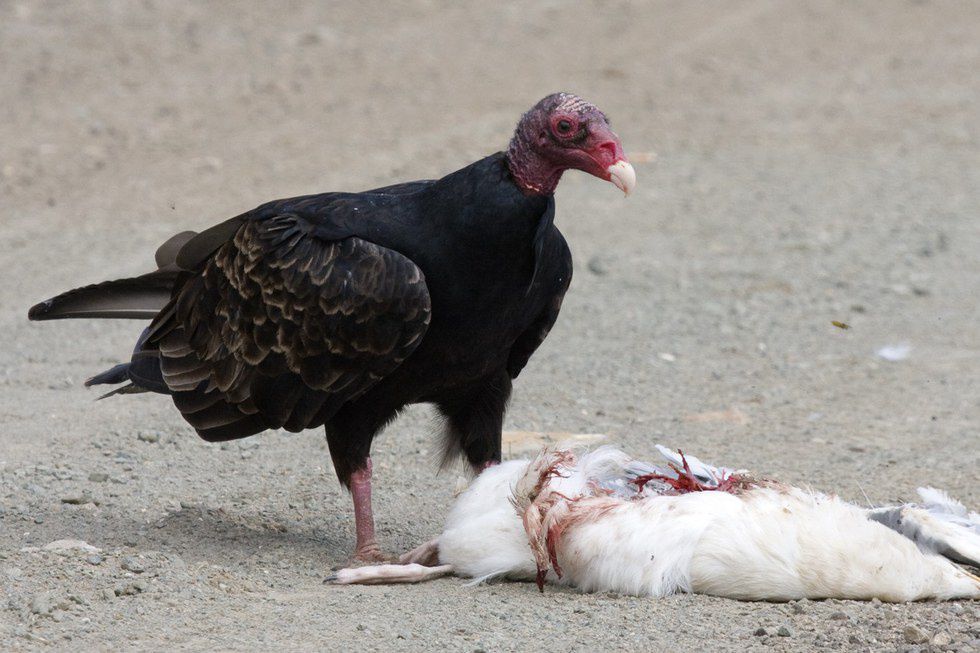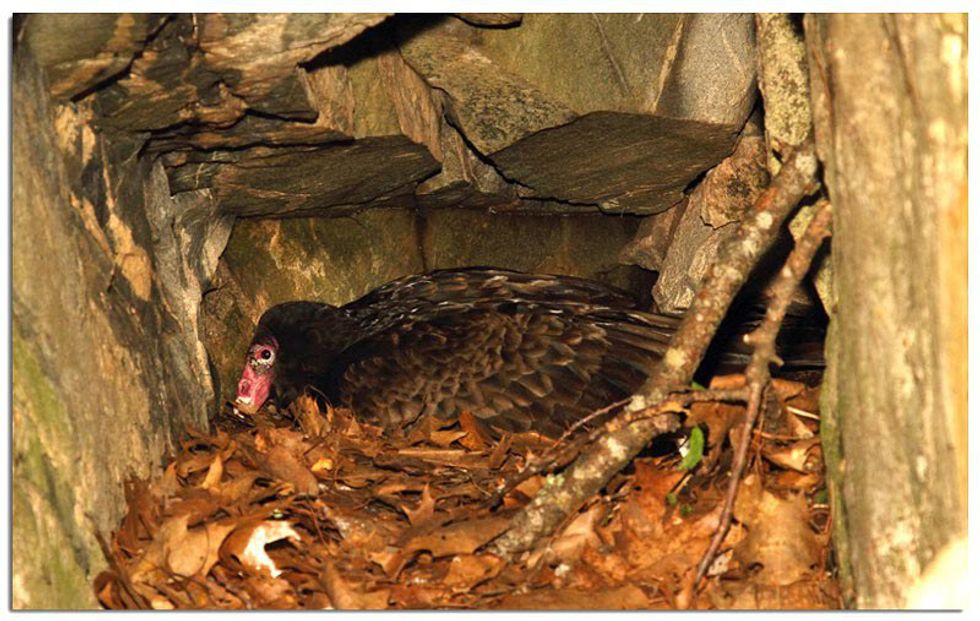Have you ever been driving along the highway, looked up and noticed a large black figure soaring ominously overhead? You may think it is an eagle or a hawk, but many times what you are actually seeing is nature's sanitation department, the turkey vulture. When people hear words like vulture or scavenger, many people are disturbed and frankly, grossed out by the images that come to mind. However, to the ecosystems they inhabit, turkey vultures help maintain the beauty of the landscape.
Diet
The scientific name for turkey vultures is "Cathartes aura" meaning "purifier bird." Their name aptly reflects their diet, which often consists of road kill, dead animals, worms and insects. Although their cuisine may sound disgusting, their eating habits make the world a little cleaner for the rest of us.
Characteristics
Turkey vultures are large black birds with wing-spans averaging six feet. They are easy to identify because of their size and red head. Turkey vultures have a couple of unique adaptations to help them consume their interesting diet. Their bald head is much more than just a fashion statement. Their head is featherless to prevent rotting flesh from sticking to their feathers when they are eating. This along with their strongly acidic stomachs help them to keep clean while devouring their dinner. Turkey vultures also have a strange habit of peeing on their own legs. It may sound repulsive but antibacterial properties in their urine help keep their feet clean and free from infectious bacteria.
Nesting and Mating Habits
Turkey vultures are extremely secretive nesters. Very little is known about what goes on inside the nest of these birds. However, it is known that a pair of mated vultures will typically stay together for life and will work together to take care of their young by feeding their young regurgitated meat. Unlike other birds, turkey vultures lay their nests on cliffs or inside caves. The female will normally lay one or two blotchy white eggs, which will hatch after about a month.
Habitat
These birds are widespread and common throughout Mexico, South America, the United States and Southern Canada. They typically spend their summers in various parts of the United States (shown in orange). Here they will breed before soaring South for the winter (shown in purple). Turkey vultures will spend their time in open areas such as farmland, and prairies where they can easily spot their meals from above.
Spotting the Turkey Vulture
These birds can be very easy to spot while driving along the highway, as they enjoy eating road kill. Look for very large birds sitting near dead animals such as on rocks or guardrails. It is also possible to see these birds in flight. Their large wingspan and soaring flight are easy to spot. They very rarely flap their wings and instead fly low to the ground; smelling for their meals.
























